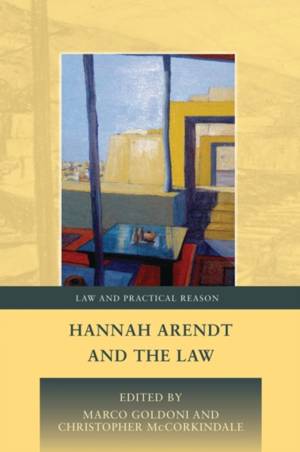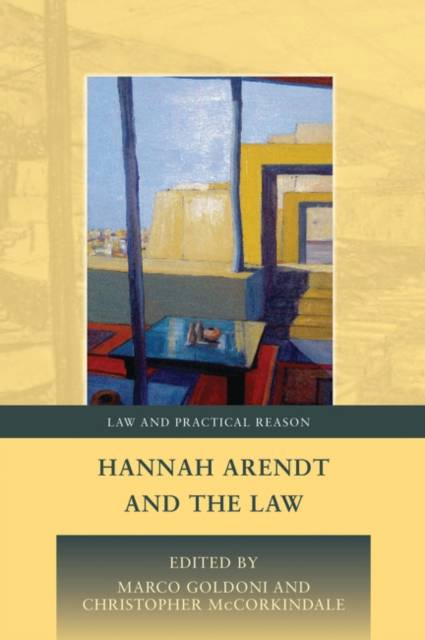
- Retrait gratuit dans votre magasin Club
- 7.000.000 titres dans notre catalogue
- Payer en toute sécurité
- Toujours un magasin près de chez vous
- Retrait gratuit dans votre magasin Club
- 7.000.0000 titres dans notre catalogue
- Payer en toute sécurité
- Toujours un magasin près de chez vous
145,45 €
+ 290 points
Description
This book fills a major gap in the ever-increasing secondary literature on Hannah Arendt's political thought by providing a dedicated and coherent treatment of the many, various and interesting things which Arendt had to say about law. Often obscured by more pressing or more controversial aspects of her work, Arendt nonetheless had interesting insights into Greek and Roman concepts of law, human rights, constitutional design, legislation, sovereignty, international tribunals, judicial review and much more. This book retrieves these aspects of her legal philosophy for the attention of both Arendt scholars and lawyers alike. The book brings together lawyers as well as Arendt scholars drawn from a range of disciplines (philosophy, political science, international relations), who have engaged in an internal debate the dynamism of which is captured in print. Following the editors' introduction, the book is split into four Parts: Part I explores the concept of law in Arendt's thought; Part II explores legal aspects of Arendt's constitutional thought: first locating Arendt in the wider tradition of republican constitutionalism, before turning attention to the role of courts and the role of parliament in her constitutional design. In Part III Arendt's thought on international law is explored from a variety of perspectives, covering international institutions and international criminal law, as well as the theoretical foundations of international law. Part IV debates the foundations, content and meaning of Arendt's famous and influential claim that the 'right to have rights' is the one true human right.
Spécifications
Parties prenantes
- Auteur(s) :
- Editeur:
Contenu
- Nombre de pages :
- 382
- Langue:
- Anglais
- Collection :
- Tome:
- n° 4
Caractéristiques
- EAN:
- 9781849461436
- Date de parution :
- 20-04-12
- Format:
- Livre relié
- Format numérique:
- Genaaid
- Dimensions :
- 163 mm x 234 mm
- Poids :
- 703 g

Les avis
Nous publions uniquement les avis qui respectent les conditions requises. Consultez nos conditions pour les avis.






